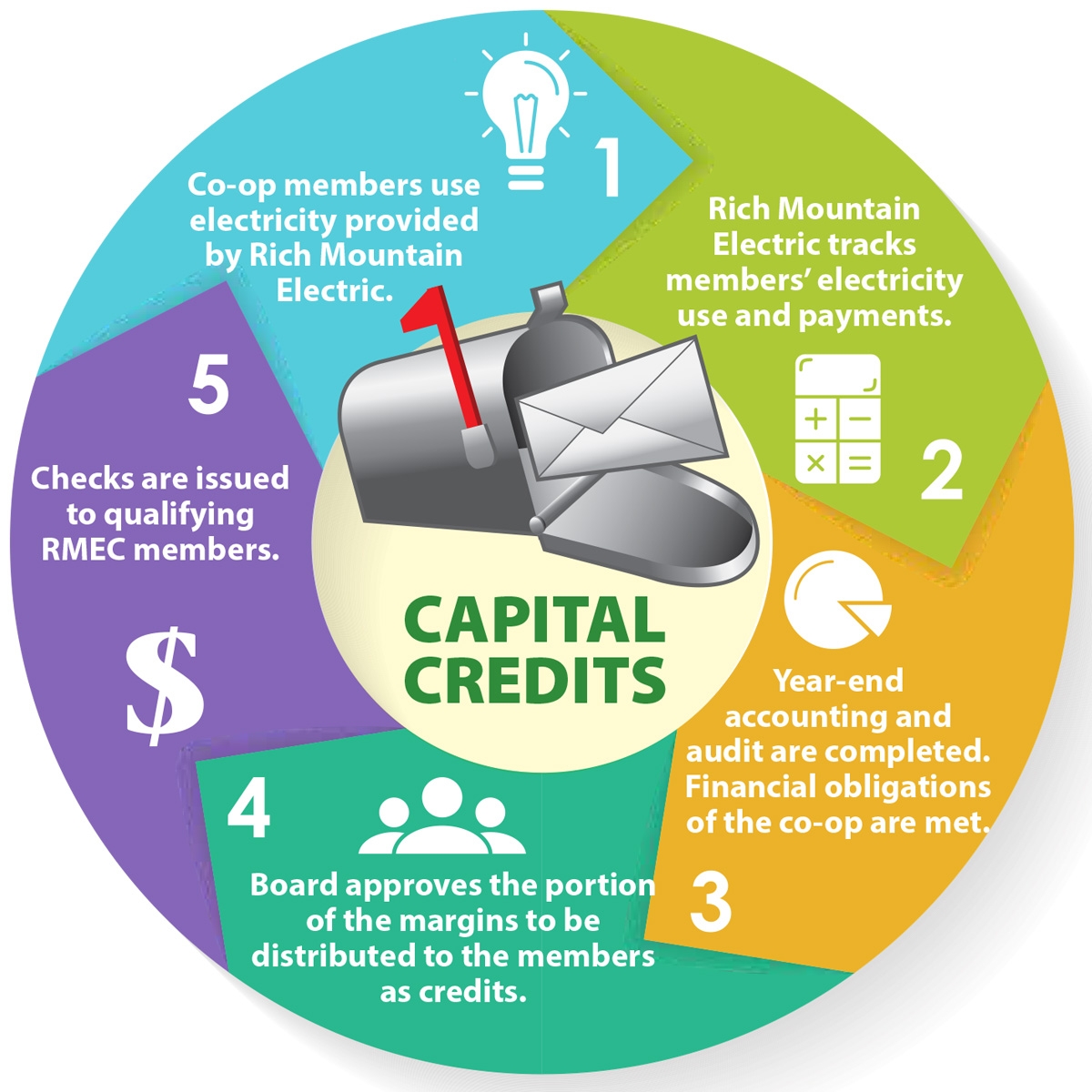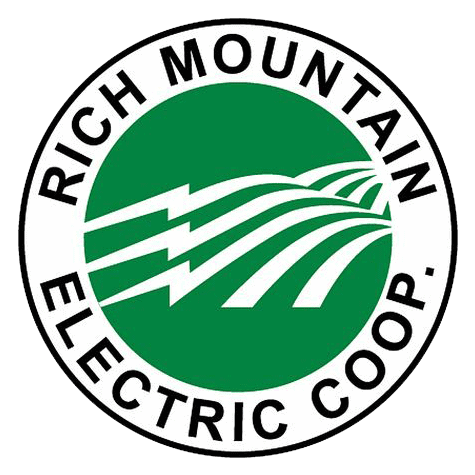IMPORTANT NOTICE: 2024 Patronage Capital
By Brad Castor, President/CEO
Notice is hereby given members of Rich Mountain Electric Cooperative, Inc. that, in accordance with the provisions of the bylaws of the cooperative, patronage capital for the year 2024 has been credited to the capital account of each member.
The Cooperative’s total margins will be allocated to the residential, commercial/industrial and special contract member-consumer classes based on each class’ revenues (excluding taxes) less purchased power costs. The factors for the residential, commercial/industrial and special contract member-consumer classes are $0.2693381468, $0.2608710721 and $0.2608710661 per kilowatt-hour, respectively. As an example, if a residential member consumed 12,000 kilowatt-hours in 2024, the amount credited to the member’s patronage capital account for the year is 12,000 x $0.2693381468 or $3,232.06.
Any member who desires specific information regarding the amount credited to his patronage capital account may obtain this information on request. This notice is only a statement regarding the assignment of patronage capital.
The Cooperative Difference
The retirement of capital credits is the tangible demonstration of your ownership in Rich Mountain Electric Cooperative (RMEC). As a member-owned cooperative, RMEC operates as a not-for-profit utility. This is accomplished through the retirement of capital credits.
What are Capital Credits
Any profits made by the cooperative are referred to as margins. At the end of each year, the margins (profits) are allocated to each member in proportion to the amount of electricity purchased. The more electricity purchased, the greater the share of the margin allocation that will be made to the member’s capital credit account. When the allocated funds are returned as capital credits to the cooperative’s members, those capital credits have been retired.
Assets of the cooperative are owned collectively and held in common by all of the member-owners. From the time the margins are generated until they are returned, this money is put to work within the cooperative, minimizing debt financing and strengthening our financial position.
Before distributing the capital credits, your board of directors at RMEC must first consider the financial condition of the cooperative and the needs for capital funds for the coming years. The amount of the retirement set by the board of directors is an amount that will maintain the financial integrity of the cooperative.

